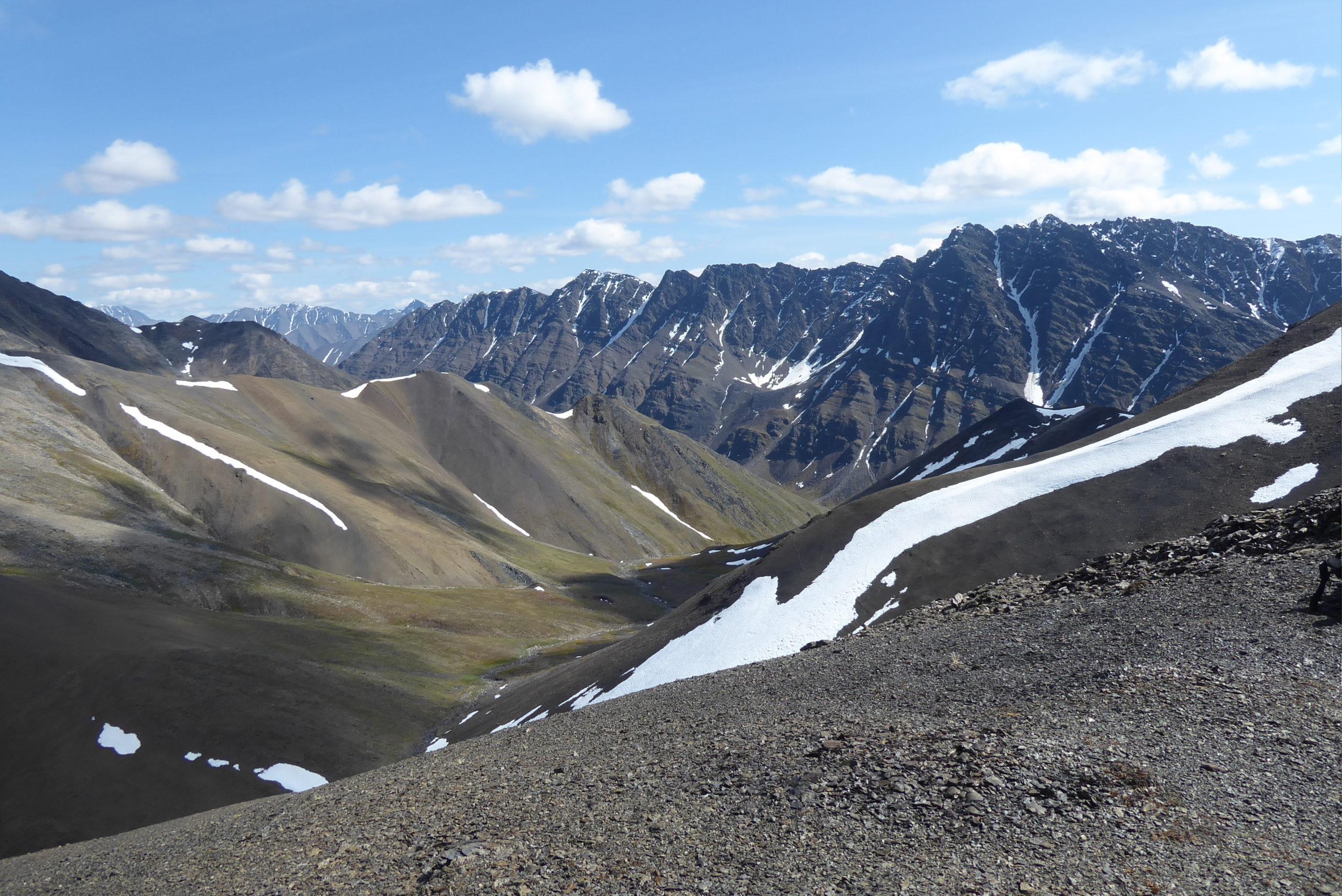
A long walk in the Arctic
By Dawnell Smith, communications director
Late last June, I drove from my home in Anchorage to Fairbanks to join a group of folks for a backpacking trip in the western Arctic.
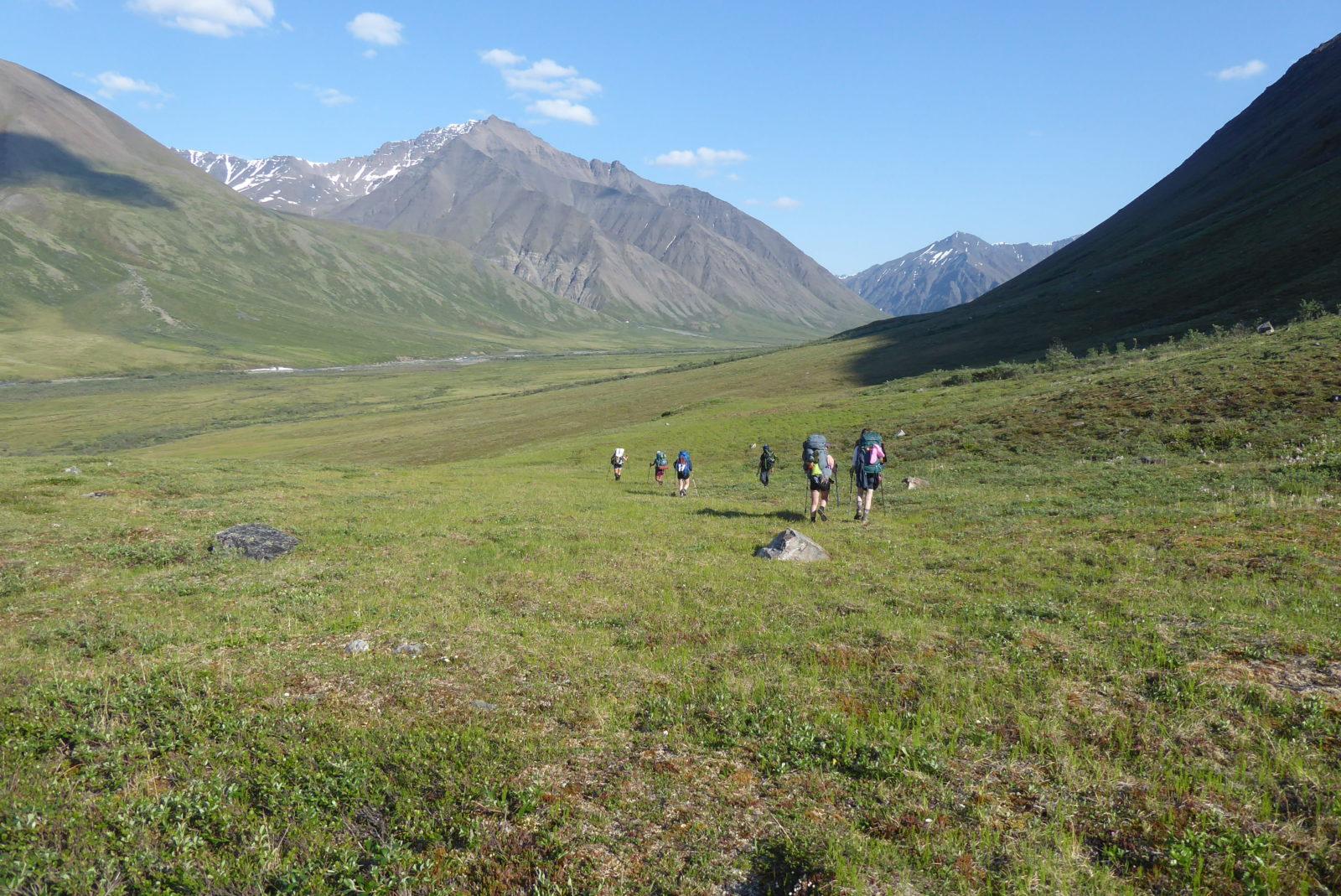
The next morning, we jumped into a mail plane to the village of Anaktuvuk Pass, poised between the Anaktuvuk and John rivers within the Central Brooks Range.
It was a bumpy and spectacular ride. The wind blew hard and cold in late June, so we bundled up after landing.
We started walking right away, first on ATV and hunting trails, and then along riverbanks, over tussocks and tundra, across streams and rivers and rises, along creeks and below steep peaks. We carried packs and hiking poles, and the sense of remembering our feet, our bodies, and our connection with the ground and the air.
And, of course, we remembered mosquitoes.
An about face
The hiking group included the guide Haley, owner of Tundra Travels, and five folks who had gone to school together at Brown University and chose this journey to reconnect after moving to different parts of the country–Brooklyn, Tucson, Austin.
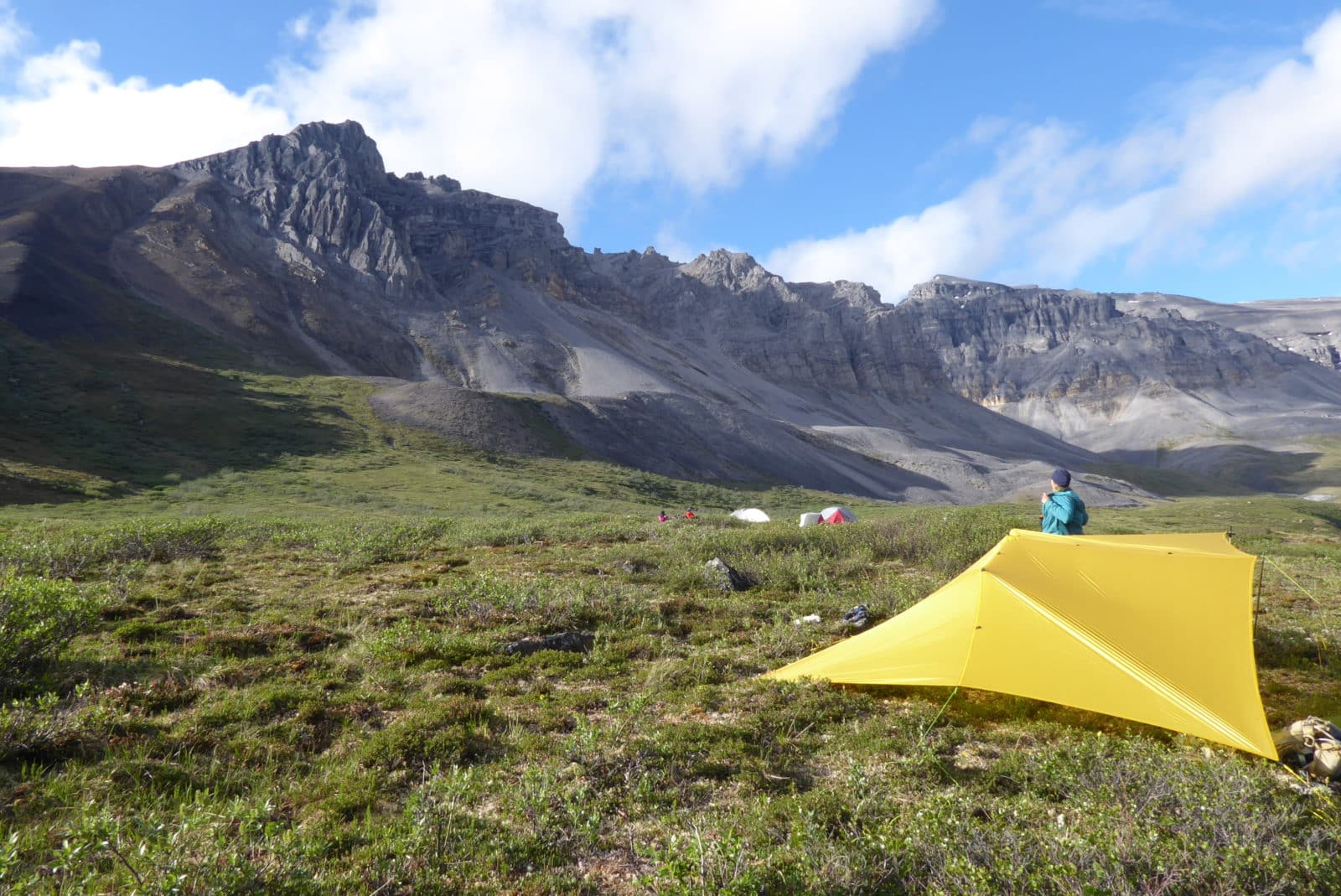
In no time, I re-learned how quickly strangers can become conspirators in laughter and storytelling when plodding and slogging and climbing and setting up camp. I learned that no matter the sense of remoteness and vastness, the world is also small and intimate, and the butterfly effect of human decisions is enormous.
Where you set camp and what route you take can alter the course of an animal’s life. A caribou will do an about-face to run back over a rise when it sees you assembled on the riverbank. A feeding bear will sprint up the side of a mountain. Plovers and ptarmigan will flee.
How we do things, what we expect or take for granted, what we fight for and care less about reverberates far beyond the places we call our homes or the periods of time we call our lives.
Bumblebee wings
On the third day of walking, I turned 59 after a poor night’s sleep. “The wind picked up and the tent caved into me half the night,” I wrote in my journal. “I got up, fixed the top pole after hastily skipping a step, and spent the rest of the night wide awake with the wind.”
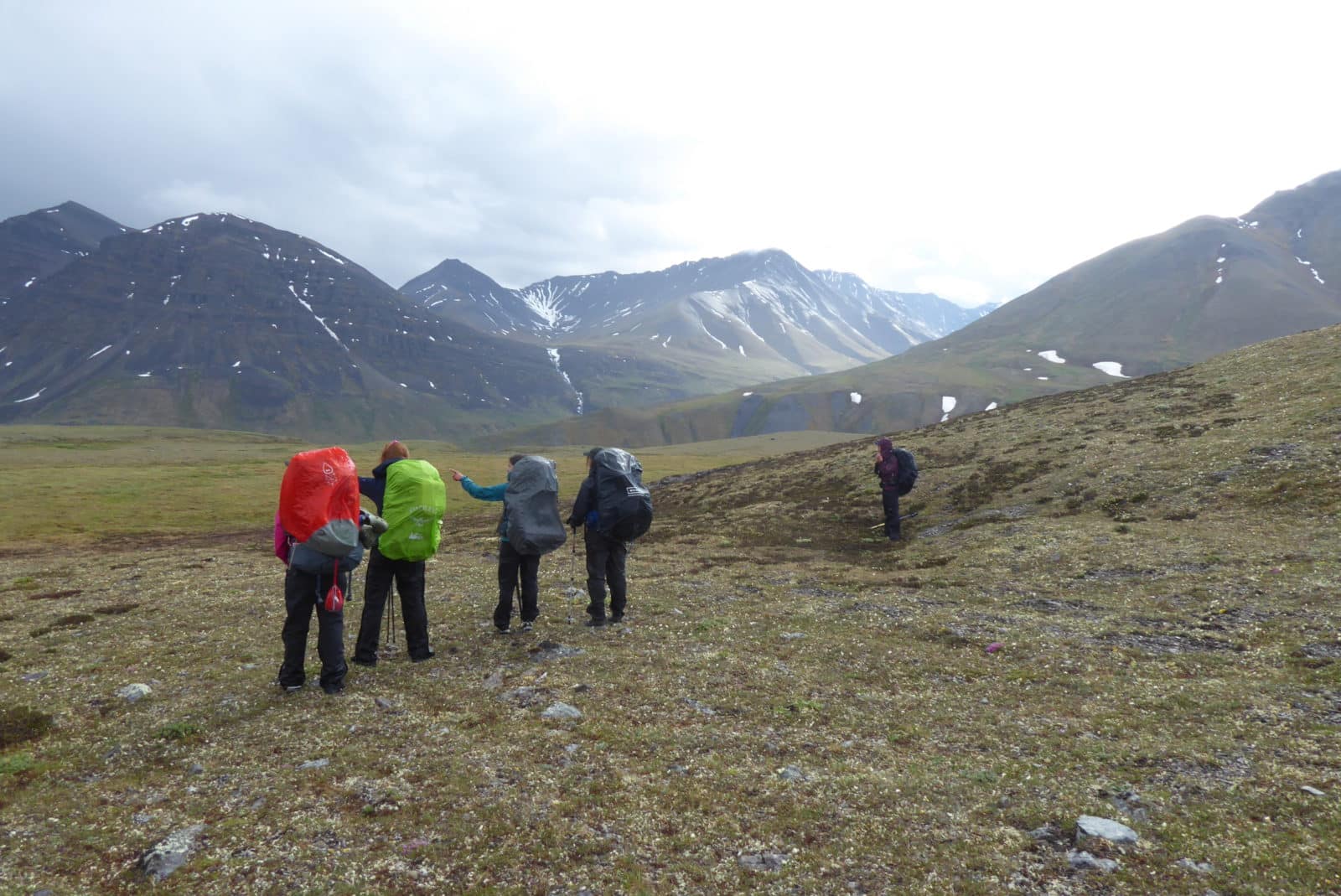
So my 60th year started off rocky and weary. We got a late start and quickly crossed a creek into rain and tussocks that ravenously consumed energy downward rather than forward. At times, all we could see were the outlines of mountains. We heard thunder as we climbed up a low, wide pass.
Late in the day, we reached the Valley of the Precipices where the sun escaped the clouds periodically and the view widened out into folds of mountains. We camped on a high ledge over a frothing river with a waterfall crashing down on the other side and peaks all around us.
The chatter of technology and social media had long left us by then, replaced by rushing water, wind humming over low brush, birdsong, distant mumblings between friends, and even the vibration of Arctic bumblebees flying from wildflower to wildflower.
The sun too shall pass
That day and that spot comes back to me a lot. It was early in our journey—before the zigzag climb up Peregrine Pass, before seeing bears, before everyone’s trail name took root. We had made camp in the clouds and woke to the sun beaming down the valley, a shot of blue skies and warmth.
It felt like a true celebration. The rain didn’t leave us for long, but it left us long enough.
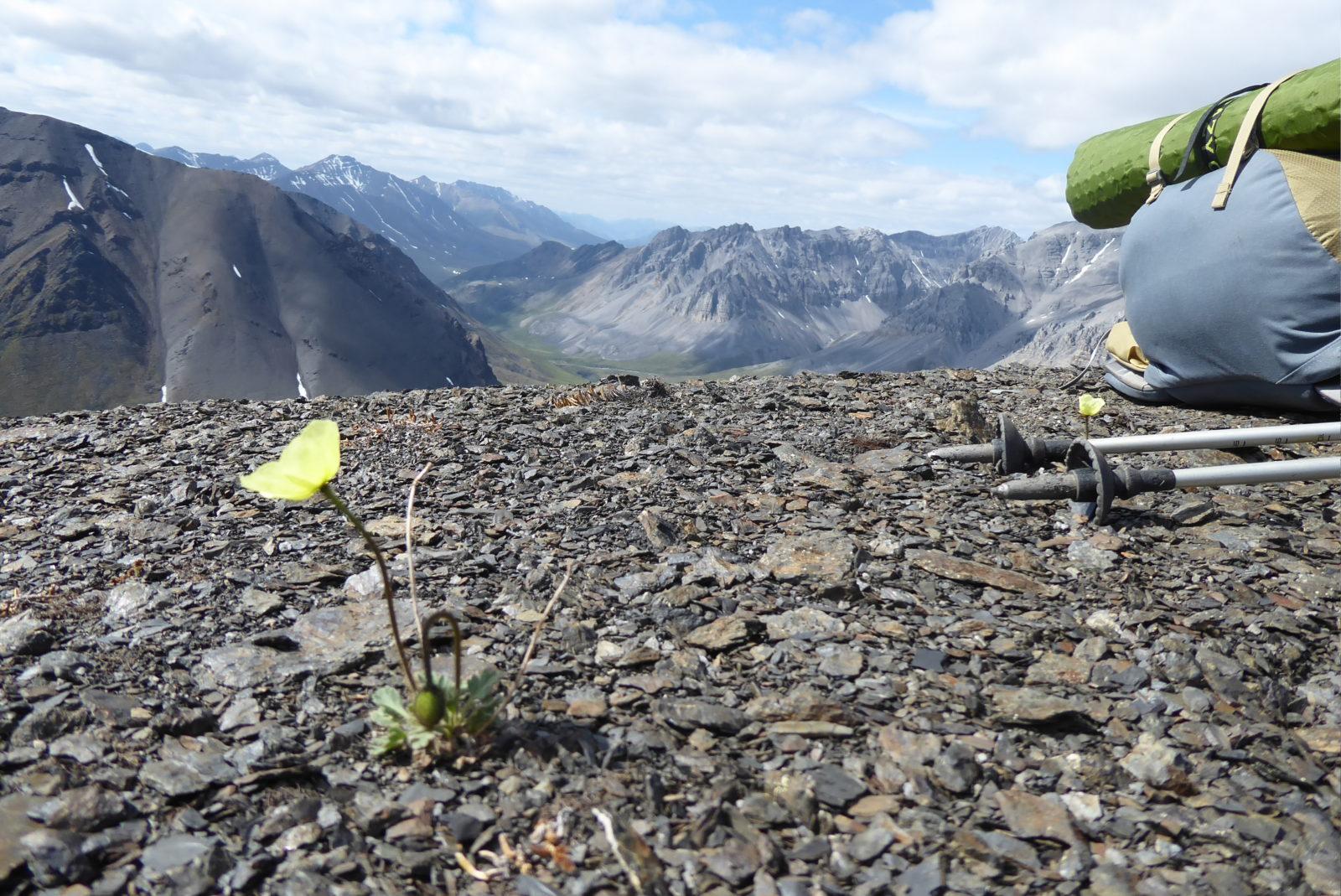
We watched a bear on the other side the river. We made our way to the spot where we would leave the river and climb the pass. We walked in a line up black scree, basking in the views from Peregrine Pass before dropping down toward a rocky river.
That’s the day I knew I firmly and fully sensed time through light and thirst and how much the pack weighed rather than through a display on a phone. It’s the day I felt profoundly aware of nothing but sensory experiences and each moment’s choices.
Where to step. How to position the tent in the wind. What to pack and where to put it. When to scan for jaegers hunting for food. How to read the sky for clues about weather.
I sensed myself as belonging and fitting in that day and thereafter, rather than as someone chasing thoughts or looking at or walking through.
One of the reasons I wanted to walk those miles, carry a pack over those passes, endure the anguish of those tussocks, and awkwardly find my place within a group of strangers was to challenge myself to celebrate everything—the land, the blisters, the stories, the mishaps, the rain, the bites, the chores, the everything humming and stirring and living all at once.
Filling up the lungs
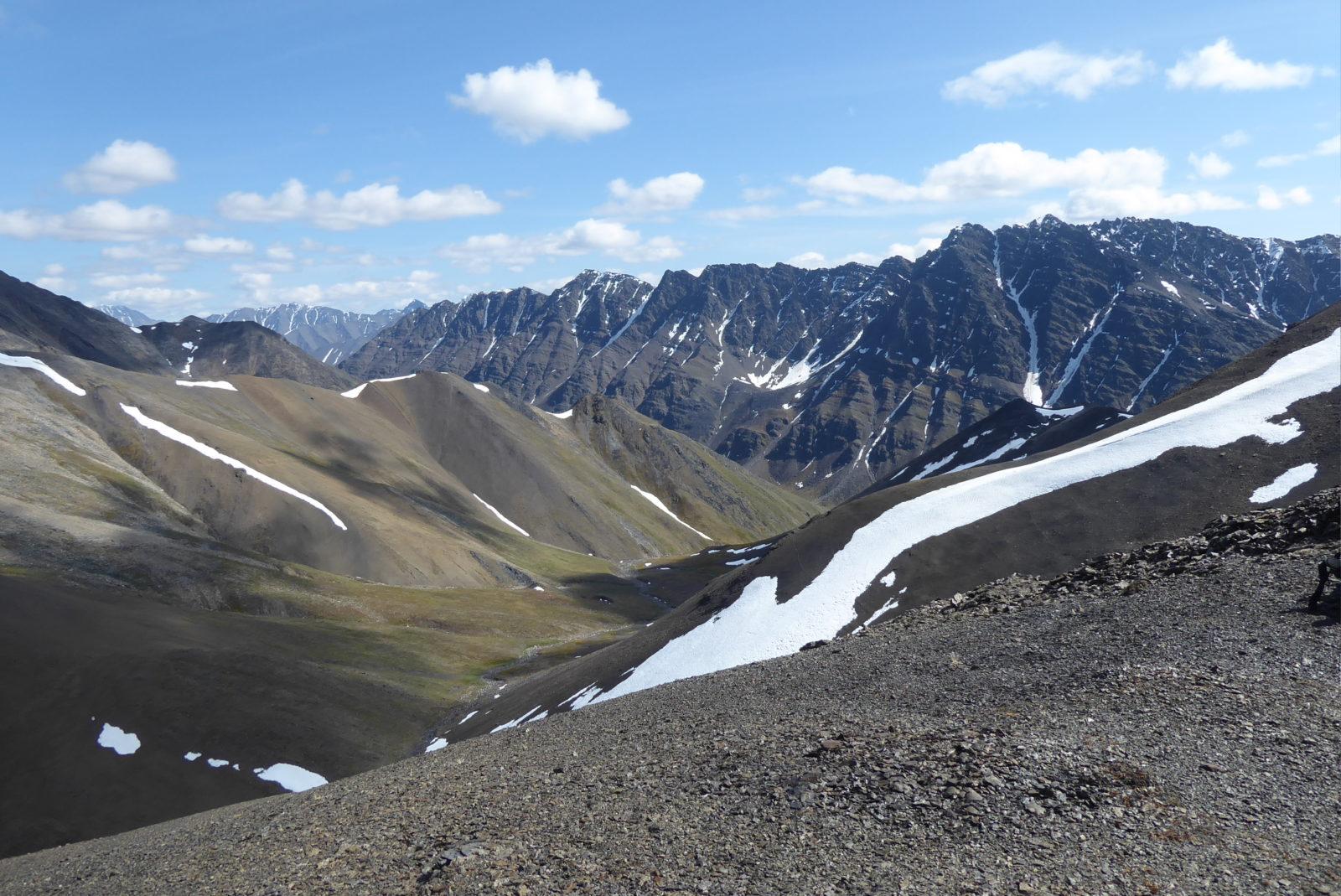
My ancestors include Europeans who came to the American continent and moved west. They were settlers chasing dreams and promises, missionaries sent to proselytize and settle communities, folks running from bad luck and trouble and also causing it. I don’t know a lot about many of them, but I know they came to stake claims to land or gold or righteousness or whatever they could call their own.
I suppose I carried that movement north. I came to Alaska from California for a job and the promise of something else in the late 1980s. I didn’t consider then how I fit into the colonial project that did harm to so many people and places. I don’t think I even knew what I expected or sought when I made it here.
I just know that when I got off the train at the depot in Denali National Park my second day in Alaska, I felt like I could breathe for the first time.
That’s what being in nature gifts me—the fullness of filling my lungs and of fully being myself.
So when I hike or walk the dogs or forage for berries or ride some snowy single-track in a city greenbelt, the trees and tundra and insects and creeks and moose remind me to know what my actions and choices mean for other people, animals, rivers, plains, and mountains.
Leaving the land
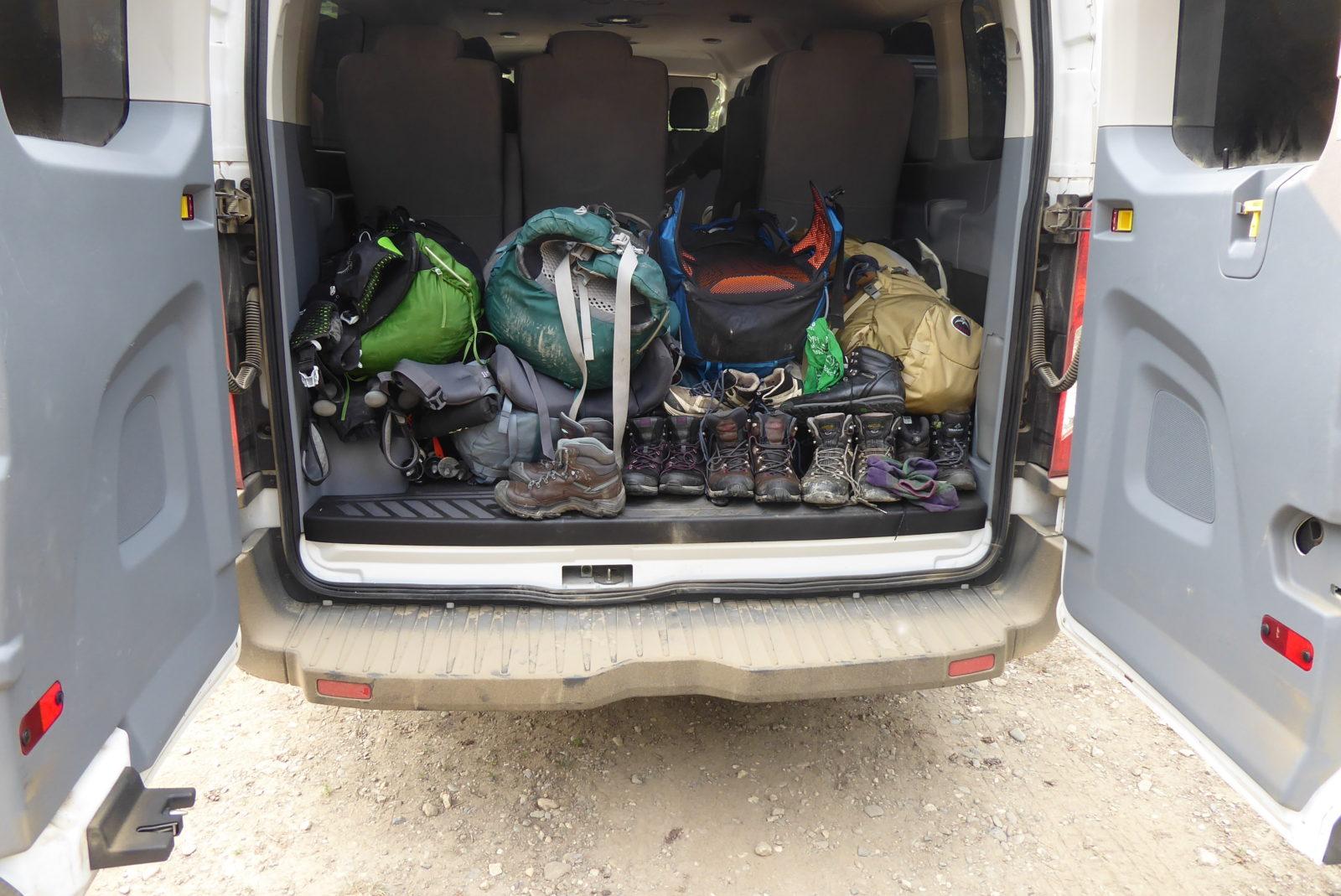
About a week after we started, we walked onto the Dalton Highway—the haul road—where trucks rumble to and from the Prudhoe Bay oil fields. We took showers. We ate burgers and sandwiches and drank Budweiser at a local lodge, because Bud was all they had.
The next day, we drove to Fairbanks, where I picked up my car and drove home, passing through the Denali Park area, where travelers and tourists fill every parking spot in the long row of gift and ice cream and coffee shops. I stopped at the campground to get water, and it was packed.
It’s easy to believe that faraway places are faraway and immune from the choices we make about what to believe, what to prioritize, and how to live. But at the end of our hike, the world felt smaller to me. It felt too easy to pass through it as if looking out a car window instead of walking step after step, squatting to look closer or standing on a high spot to look beyond.
NOTES
- A note about Haley: She is kind, clear, confident, organized, hilarious, and intentional about how she runs trips. I cannot say enough about Haley and her company. I highly recommend Tundra Travels to anyone who wants to hike and backpack. She has several planned trips in the Arctic National Wildlife Refuge and Gates of the Arctic in 2023, as well as in the Talkeetna Mountains. She also works with folks who want to do private trips.
- A note about Team Shrew: I cannot imagine a better group of people to have joined as a solo straggler than Aliza, Andrea, Pablo, Rachel, and Sarah. They are profoundly fun, caring people with big hearts and hilarious stories and amazing kindness.
- A note about the Brooks Range and Gates of the Arctic: The “official” names for these places, like everywhere, reflect the power of institutions and governing systems in naming natural spaces. The mountains and landscapes, waterways and peaks, valleys and animals have names given them by the people who have always lived there. I’ve learned that the range is called Gwazhal in the Gwichʼin language and a specific part of them called Arrigetch Peaks means ‘fingers of the outstretched hand’ in the Inupiat language.The U.S. Board on Geographic Names gave this vast array of mountains the name “Brooks Range” after geologist Alfred Brooks in 1925.
- Final note: Anaktuvik Pass sits within the boundaries of Gates of the Arctic National Park, homeland of the Nunamiut Iñupiat and the traditional lands of Iñupiaq and Athabascan peoples. The name means “place of caribou droppings” in Iñupiaq. Human activity, particularly industrialization, has had an impact on people, caribou and interrelated animals, plants and ecological systems. This story from 2020 talks about how Anaktuvuk Pass fights for its namesake, caribou.
Three questions about spending time in/with nature
What do you think is the ideal amount of time for you to spend in/with nature?
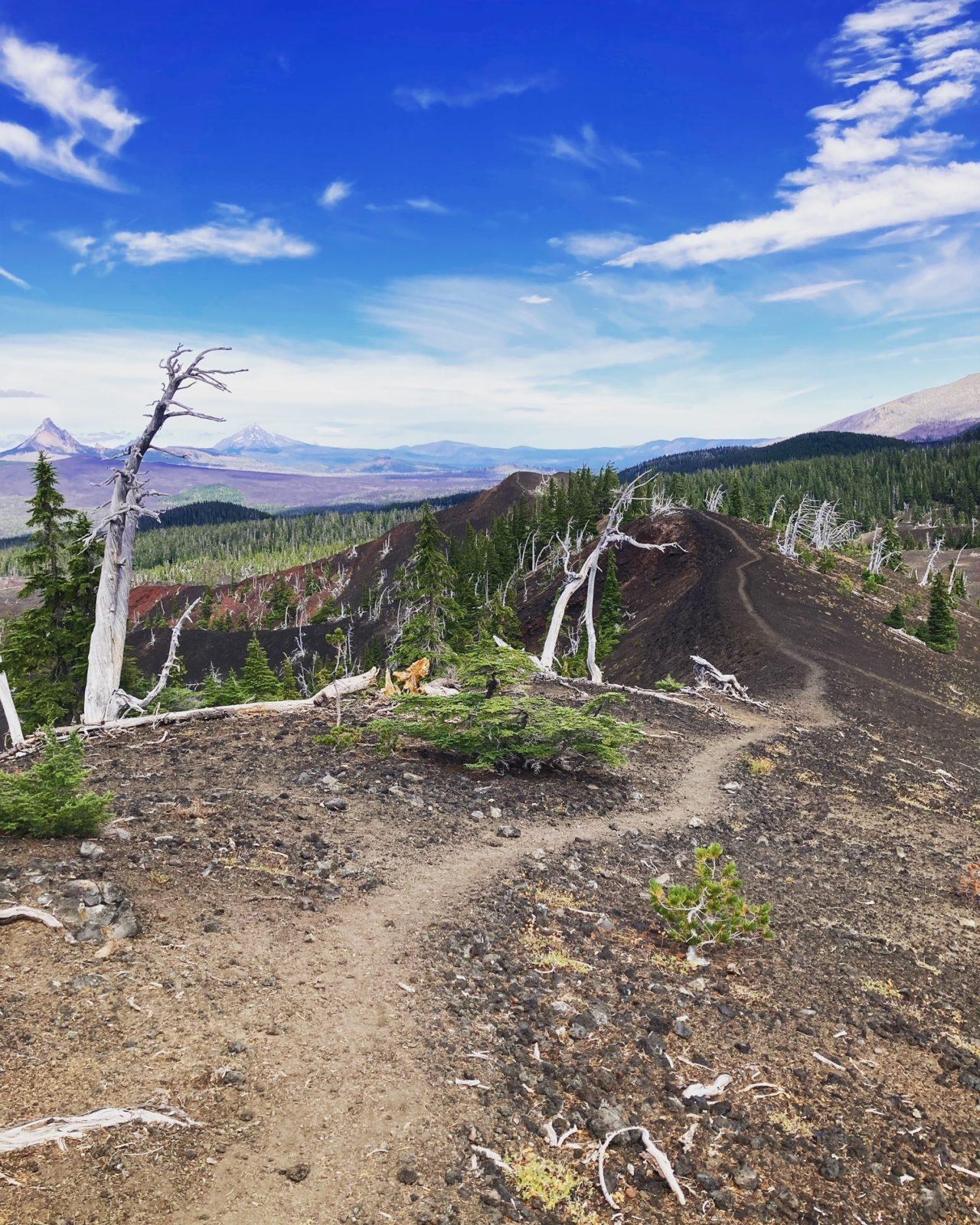
At least an hour a day in daily life, and many days or weeks when I can make the space for it. Longer periods really matter. It’s how I feel like I belong to the earth again. It’s how I notice all the small things and how they interconnect. It’s how I remember how to be part of everything all at once.
What does a meaningful experience in nature look like for you?
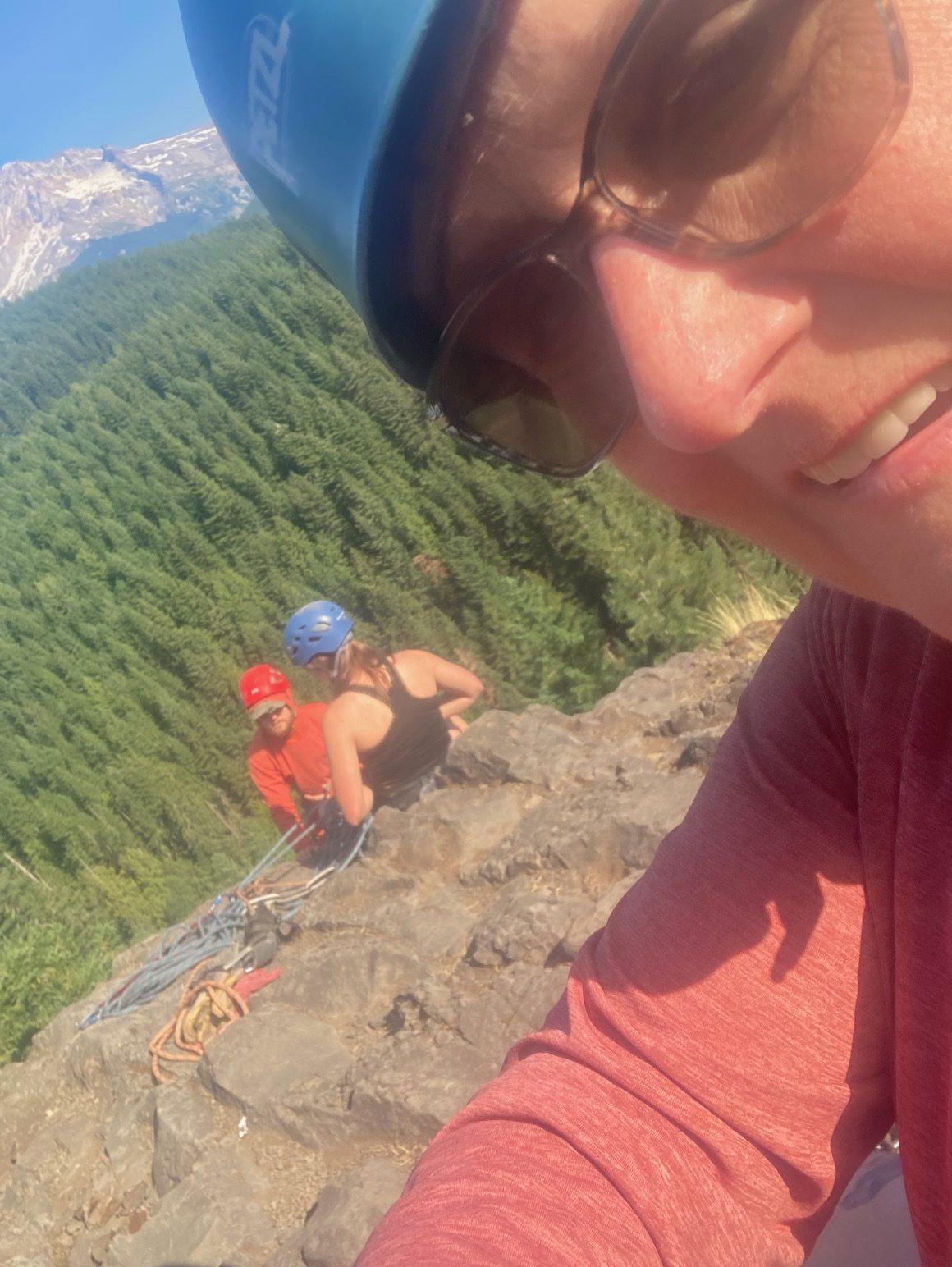
I guess it’s when I’m in a place of moving or seeing and then just being. It’s when I feel outside of time and very much inside my body. Part of it is about movement and cycles of motion–climbing, hiking, biking, bending and peering, foraging and picking, pushing myself in every way, through all the motions of life–and also it’s about feeling like belonging within the bigger cycles and motions.
Describe one moment in nature/outdoors that left you with a sense of awe and connection?
I hiked on summer solstice last summer with my partner, who has had knee and other injuries that have made it hard for her to hike. We ended up climbing a mountain not far from town. We took a less used route where we saw nearly no one, and walked along a ridge with stunning views of the Chugach Range. The clouds were thick and dense, the wind crisp.
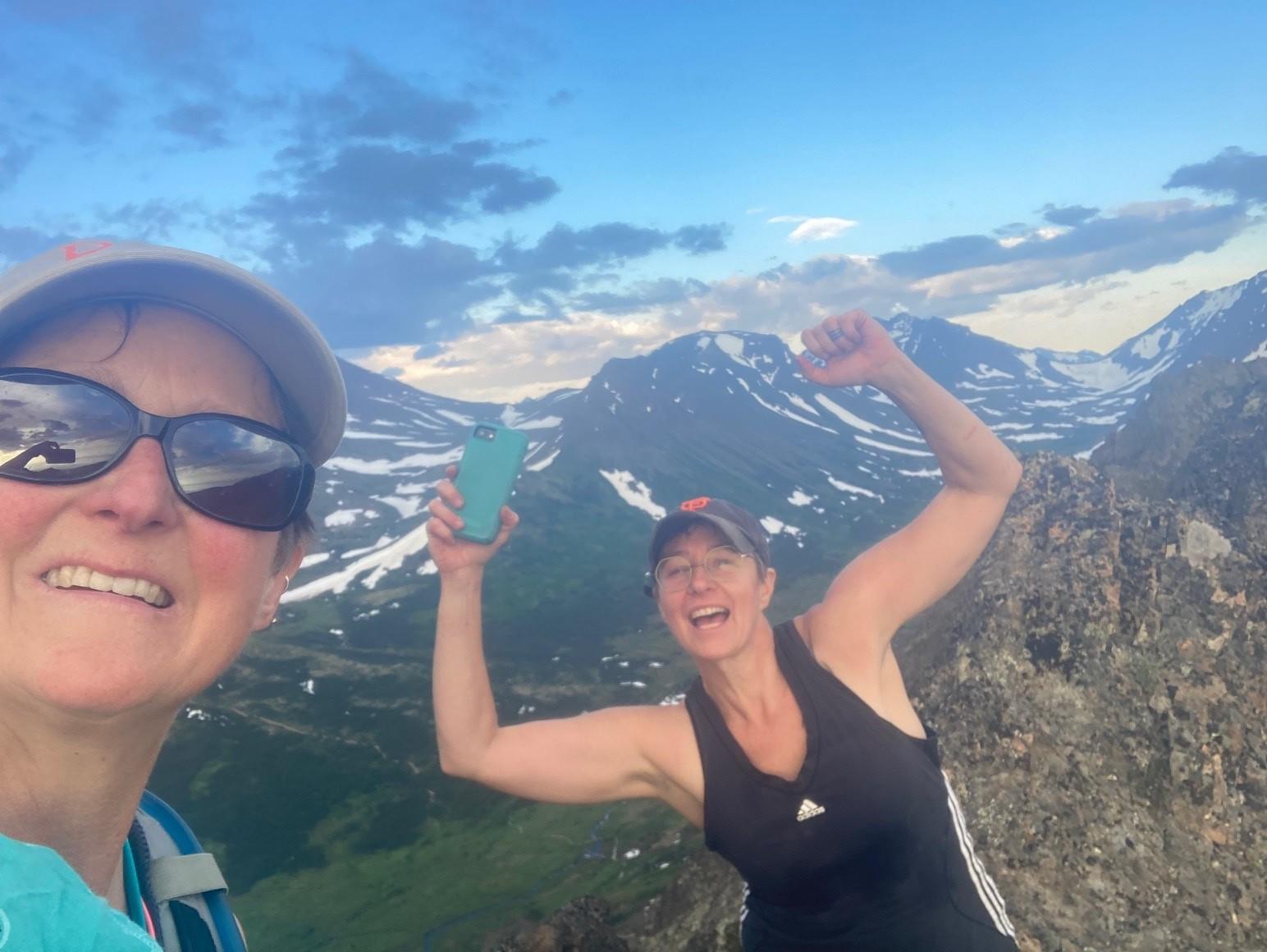
The experience was in some ways prosaic. I do similar hikes all the time. But the clouds against the sky on that long sunlit day had a rarefied appearance, almost supersaturated and surreal, and yet just over the hill, dozens and dozens and dozens of people were hiking up Flattop, the most climbed rise in Anchorage.
People were laughing and playing music, hauling up kids, trailing legions of dogs. There might have been hundreds of people on that flat top of the mountain that night.
It was as if a single ridgeline scramble separated solitude from a shared social celebration, and the motherly, otherworldly sky hung over it all like it always does.
Dawnell is communications director with Trustees. Her story is the eighth in a monthly series about how nature, getting outside, and being with land and water influences human health, resilience, connection, and purpose. Look for these stories in our monthly newsletters.
Previous stories in the series:
- Bridget’s story: The outside life–an ode to icy slopes and jampacked campgrounds
- Lang’s story: Being in that exact spot, at that exact moment
- Brian’s story: A recipe for well being
- Joanna’s story: This seasick soul is lovesick for the sea
- Tracy’s story: My summers with dirt
- Ashley’s story: Just a country girl
- Rachel’s story: Nature teaches me I’m the protagonist in my own life
- Katie’s story: Howling pierced the morning quiet


